Accessible Travel
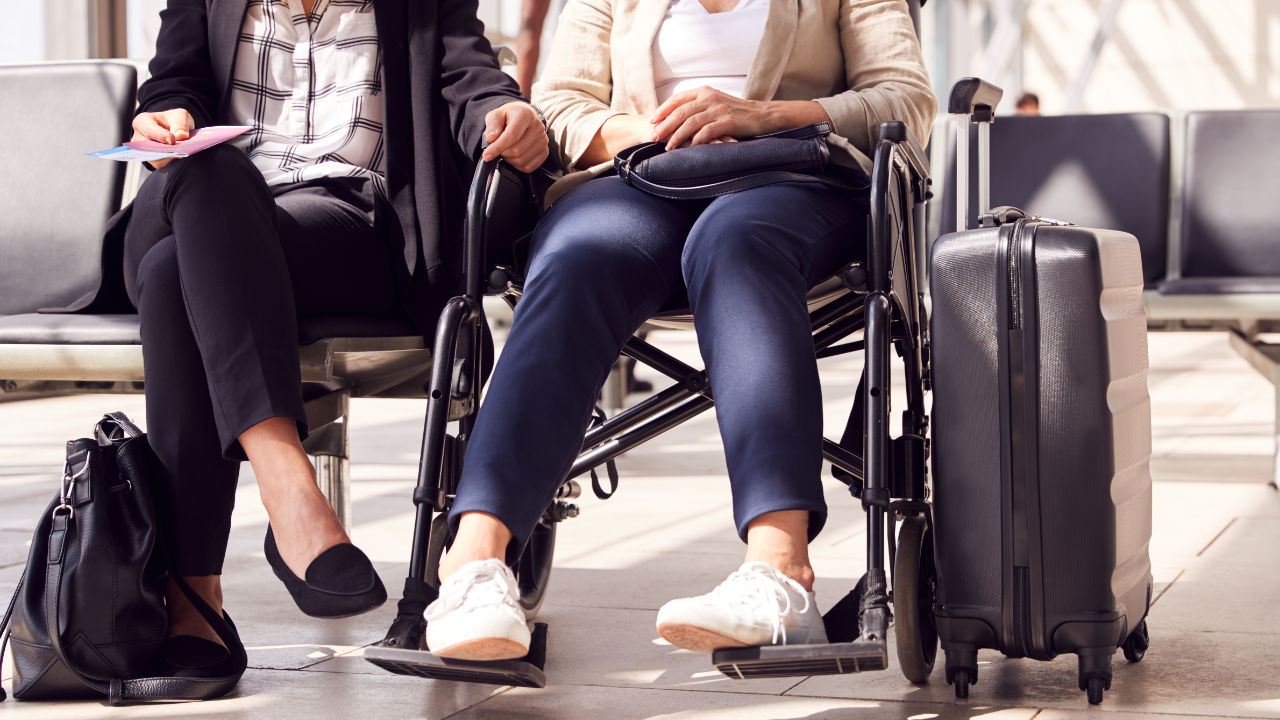
Travel is this vast, ephemeral concept, isn’t it? We all think we know what it means, but it can shift and morph depending on who you ask. So, here's the thing about accessible travel. Hmm, where do I start? Maybe with the idea that it's not just about having a wheelchair ramp at a hotel. It’s something deeper, more nuanced. In fact, when you really get into it, accessible travel demands a reconsideration of what travel even is. And by "reconsideration," I mean holding up all our assumptions about travel like pieces of a jigsaw puzzle, and then trying to see which parts fit neatly alongside accessibility without forcing it. Perhaps when I think more about it, travel is about freeing oneself, exploring new geographical terrains, expanding horizons both literally and figuratively. But accessibility? It’s kind of about navigating a world that—for whatever reason—isn't designed with everyone in mind.
To be honest, it's kind of funny (or maybe curious?) how often "accessible travel" is treated as a niche area. As though it's a side note in the wider travel industry. Just think about it for a second: Travel for everyone should mean just that—everyone. Including those with physical disabilities, cognitive disabilities, or sensory ones. When I first started considering accessible travel, I thought, "Okay, this probably means more space between the rows on a plane or braille signs at a museum," but it's a lot more than that.
The Complexity of Access
Ah, complexities. They’re like the unwelcome guests at a party that linger long after everyone else has gone home. But with travel? Complexity takes on a rich tapestry of experiences. Take airports, for example. If you think about bustling hubs of activity like Heathrow or JFK, the sheer scale of accessibility required is staggering! From hearing loop systems to text-based notifications, there’s so much behind the scenes. Accessible travel, when you dive in, is this intricate puzzle—a dance of inclusion. And I think that's fascinating—no, overwhelming at times. Given how often the travel experience is punctuated by unpredictable events, it’s a huge ask to make everything seamless.
But then again, doesn’t this underline the essence of accessible travel? It’s a commitment to layering inclusive practices that might seem excessive but are essentially humane and, well, decent. Maybe, you could argue, it’s that travel, when claimed by accessibility, becomes a narrative of resilience. Maybe that’s why it feels important—because it challenges the status quo. I guess the travel industry is catching on, bit by bit, though!
Diverse Experiences and Differing Needs
Now, here’s where it gets interesting—why are experiences still so varied? You could be visiting the Colosseum (because, why not?) or taking a relaxing dip in the Mediterranean, and here, accessibility means entirely different things. Florence might be all picturesque alleyways, but try navigating them if you can't climb a step. I'm reminded of a friend’s story—got me pondering how accessible travel changes depending on which part of the world you find yourself in. In some places, stuff just works, you know? And in others, not so much. Universal design—a term we throw around—seems almost aspirational sometimes.
I admit I’m a bit torn on this. Sure, advocating for globetrotters’ equality is a positive endeavor. But then the realities of bureaucracy, budget cuts, and differing attitudes make it seem like an endless uphill struggle. That said, think of how much potential lies in cultural exchange, the beauty of shared experiences. This is travel stripped to its core.
Tech and Innovation: The Great Equalizers?
Here’s a thought that grabs me: With technology, it's like we have these keys to unlock greater inclusivity in travel. Know what I mean? From virtual reality experiences allowing accessibility previews to AI-driven apps translating signage, it's increasingly evident that tech can, in some ways, overcome barriers in physical spaces. Even so, sometimes I wonder if we rely overly on technology as a crutch rather than addressing the root of the issue. Just a passing thought, really.
Technology, in the mix of accessible travel, becomes this double-edged thing. It promises much but tends to shift, very easily, alongside the fast track of change, meaning tons of incentive—but also unpredictability. In working out the function of technology, my mind shifts to think about digital access, in itself a form of accessible travel. The question then becomes, how equipped are we to ensure the same kind of immersion for those who navigate the world differently?
Reflections on the Road Ahead
Travel's involved in this constant interplay with how we imagine freedom, and I believe accessible travel enriches that narrative. When I think of how far we’ve come, there’s plenty to be encouraged about, but equally, there's much more left to do. Come to think of it, maybe the fascinating part lies in the journey itself. It kind of sounds poetic, doesn’t it? Maybe I’m being too idealistic here.
Revisiting views of accessible travel has been like uncovering layers of an onion. One whiff transports you to a scent, both enchanting and tearful. I believe the ultimate takeaway is a broader understanding—that travel isn’t a privilege; it’s a right. But then again, how often does rhetoric match reality? This makes me take a pause. I guess, reviewing how accessible travel weaves into the world’s larger debated tapestry reminds us that conscientious actions, no matter how small, matter.
It's odd that I think about it this way, but as we further tread down future paths, how navigable those paths are will determine how universal our notion of travel really is. And isn't that something worth striving for, after all? I mean, biting off more than we can chew at times, but invariably going for one more bite, anyway.
FITUR4all Madrid Forum And Awards, January 2026

Lufthansa Hidden Disabilities Sunflower Support Onboard

Emirates rolls out new accessibility services end-to-end
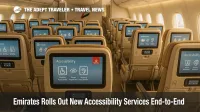
Dubai Airports accessibility strategy: 2035 push
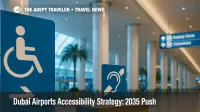
DOT eyes rollback of airline wheelchair rules
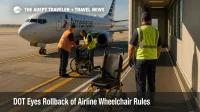
Edinburgh Airport strike averted

Spain Leads Accessible Tourism, U.S. Travelers Top Spend

Lisbon Accessible Beaches: 2025 'Beach for All' Guide
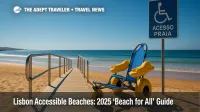
Southwest backlash fuels airline disability rights fight

California Accessibility Hub Opens for Inclusive Travel
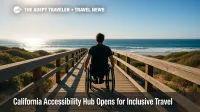
Harry Reid Airport Launches Free On-Demand ASL Interpretation
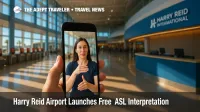
Hilton Enhances Accessibility with Be My Eyes App
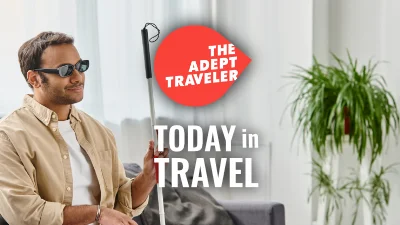
American Airlines Launches Automated Tags for Mobility Devices
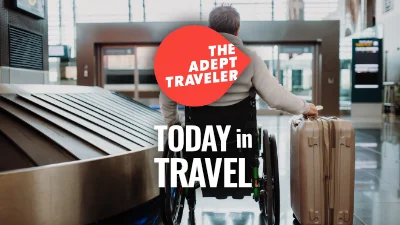
Emirates Earns Certified Autism Center™ Designation for Dubai Facilities

Beaches Resorts: Autism-Friendly Vacations

Disney Updates DAS for Guests with Disabilities

United Airlines Innovates with Wheelchair-Friendly Flight Tool
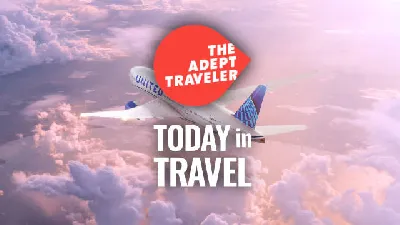
Revolutionizing Accessibility: United Airlines Elevates Experience for Wheelchair Users

United Airlines Pioneers Braille Integration: More Accessibility for Flyers

Travel News: Strikes at London Heathrow, Spirit-JetBlue Merger, and Disabled Travel

Travel News: LEGOLAND & Autism, Earthquake in Turkiye, and U.S. Air Travel
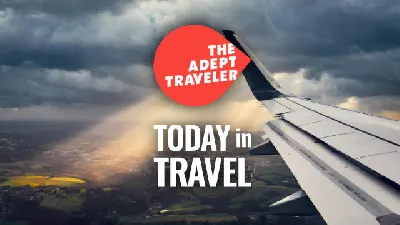
Travel News: Accessible Travel in Georga, Rail Strikes in the EU, and SouthWest Becomes Family Friendly
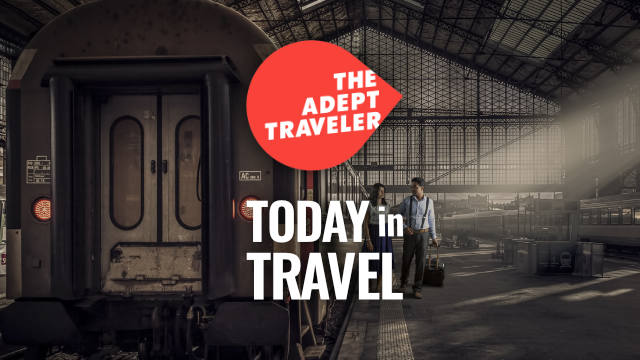
Travel News: Flying with Autism, Oceania's new Itineraries, and a U.S. Pilot Strike

Travel News: Disabled Travel, Safari's, and Australian Cruises

